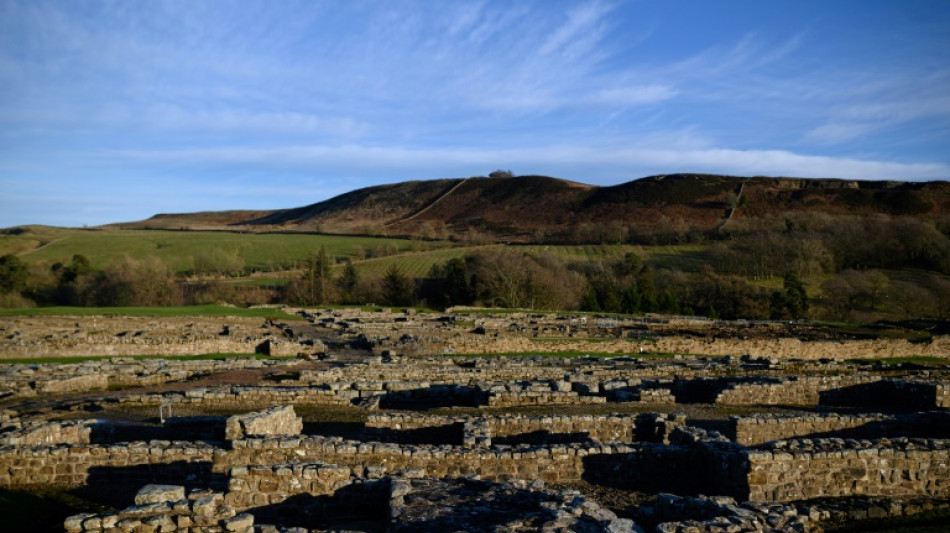
-
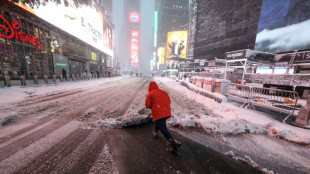 Snowstorm blankets US northeast as New York sees travel ban
Snowstorm blankets US northeast as New York sees travel ban
-
Healthcare crisis looms over Greenland's isolated villages
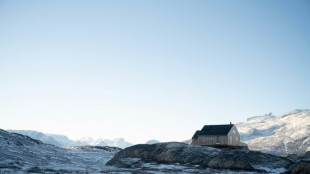
-
 Hodgkinson says breaking 800m record would put her among athletics' greatest
Hodgkinson says breaking 800m record would put her among athletics' greatest
-
Two Russian security personnel were on board France-seized tanker: sources
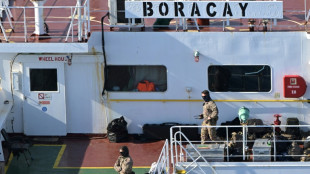
-
 EU puts US trade deal on ice after Supreme Court ruling
EU puts US trade deal on ice after Supreme Court ruling
-
Hetmyer blasts 85 as West Indies pile up 254-6 against Zimbabwe

-
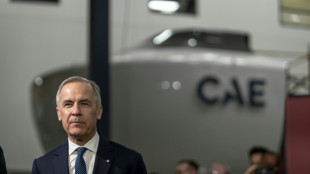 Canada PM heads to Asia seeking new trade partners as US ties fray
Canada PM heads to Asia seeking new trade partners as US ties fray
-
South Africa accepts Trump's new US ambassador

-
 Iraq's Maliki defends PM candidacy, seeks to reassure US
Iraq's Maliki defends PM candidacy, seeks to reassure US
-
UEFA suspend Benfica's Prestianni after alleged racist abuse

-
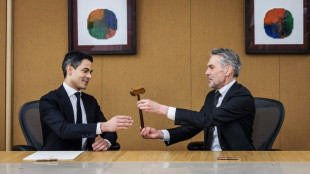 Jetten sworn in as youngest-ever Dutch PM
Jetten sworn in as youngest-ever Dutch PM
-
Italy's Enel to invest 20bn euros in renewables by 2028
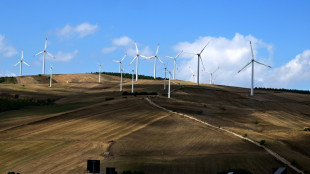
-
 BBC apologises for 'involuntary' Tourette's racial slur during BAFTA awards
BBC apologises for 'involuntary' Tourette's racial slur during BAFTA awards
-
Kristen Bell returns to host glitzy Actor Awards in Hollywood

-
 Iran says would respond 'ferociously' to any US attack
Iran says would respond 'ferociously' to any US attack
-
Venezuelan foreign minister demands 'immediate release' of Maduro
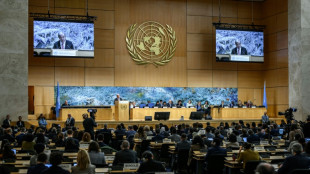
-
 Dane Vingegaard to start season at Paris-Nice in March
Dane Vingegaard to start season at Paris-Nice in March
-
Australia PM backs removing UK's Andrew from line of succession
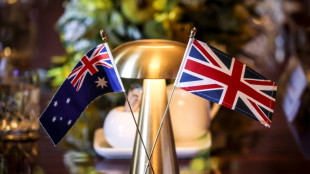
-
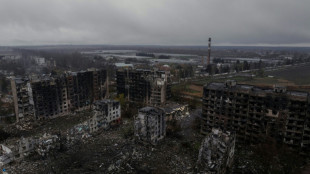 Where do Ukraine and Russia stand after four years of war?
Where do Ukraine and Russia stand after four years of war?
-
Police investigating racist abuse of Premier League quartet

-
 Fiji to start Nations Championship at 'home' to Wales in Cardiff
Fiji to start Nations Championship at 'home' to Wales in Cardiff
-
EU lawmakers to put US trade deal on hold after Supreme Court ruling

-
 Rubio to attend Caribbean summit as US presses Venezuela, Cuba
Rubio to attend Caribbean summit as US presses Venezuela, Cuba
-
'Ugly' England aim to spin their way to T20 World Cup semi-finals

-
 Nigeria paid Boko Haram ransom for kidnapped pupils: intel sources
Nigeria paid Boko Haram ransom for kidnapped pupils: intel sources
-
Tudor says Tottenham can still beat the drop despite Arsenal loss

-
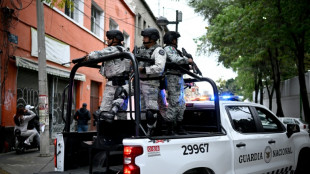 Violence sweeps Mexico after most-wanted drug cartel leader killed
Violence sweeps Mexico after most-wanted drug cartel leader killed
-
France giant Meafou capable of being 'world's best' lock

-
 Stocks diverge, dollar down over Trump tariffs uncertainty
Stocks diverge, dollar down over Trump tariffs uncertainty
-
World champions South Africa announce eight home Tests for 2026/27

-
 Liverpool boss Slot encouraged by Mac Allister's return to form
Liverpool boss Slot encouraged by Mac Allister's return to form
-
India replaces British architect statue with independence hero
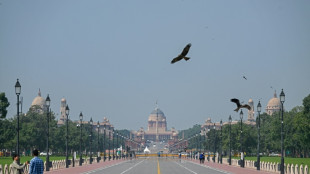
-
 Pakistan warn England's flaky batting to expect a trial by spin
Pakistan warn England's flaky batting to expect a trial by spin
-
Philippines' Duterte authorised murders, ICC told as hearings open

-
 Iran says would respond 'ferociously' to any US attack, even limited strikes
Iran says would respond 'ferociously' to any US attack, even limited strikes
-
New Dutch government sworn in under centrist Jetten

-
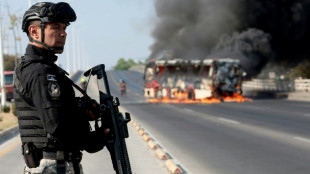 What the future holds for the CJNG cartel after leader killed
What the future holds for the CJNG cartel after leader killed
-
ICC kicks off pre-trial hearing over Philippines' Duterte

-
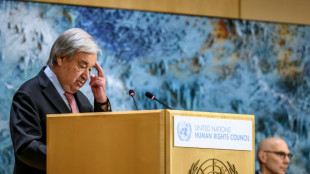 UN chief decries global rise of 'rule of force'
UN chief decries global rise of 'rule of force'
-
Nemesio Oseguera, the brutal Mexican drug lord known as 'El Mencho'
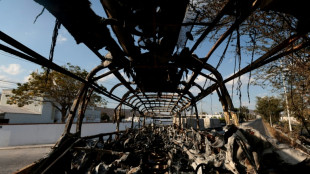
-
 Senegal's Sahad, radiant champion of 'musical pan-Africanism'
Senegal's Sahad, radiant champion of 'musical pan-Africanism'
-
New York orders citywide travel ban as major storm hits US
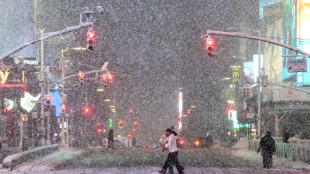
-
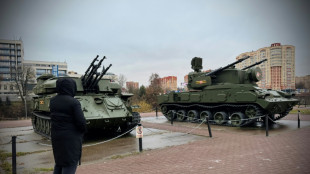 'Considered a traitor': Life of an anti-war Ukrainian in Russia
'Considered a traitor': Life of an anti-war Ukrainian in Russia
-
South Korea and Brazil sign deals on K-beauty, trade
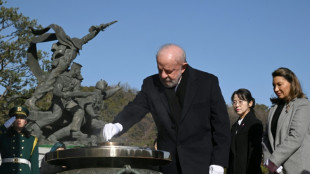
-
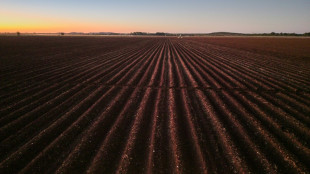 Zimbabwe farmers seek US help over long-promised payouts
Zimbabwe farmers seek US help over long-promised payouts
-
Hong Kong appeals court upholds jailing of 12 democracy campaigners
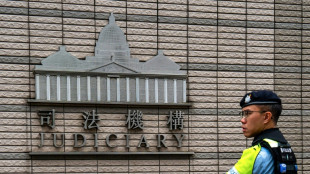
-
 India battle for World Cup survival after 'messing up on grand scale'
India battle for World Cup survival after 'messing up on grand scale'
-
'I will go': Bengalis in Pakistan hope for family reunions

-
 North Korea touts nuclear advances as Kim re-chosen to lead ruling party
North Korea touts nuclear advances as Kim re-chosen to lead ruling party
-
South Korea protests 'Victory' banner hung from Russian embassy
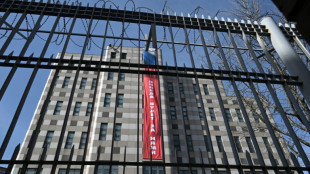

Climate change threatens Hadrian's Wall treasures in England
Nineteen hundred years after it was built to keep out barbarian hordes, archaeologists at Hadrian's Wall in northern England are facing a new enemy -- climate change, which threatens its vast treasure trove of Roman artefacts.
Thousands of soldiers and many of their families lived around the 73-mile (118-kilometre) stone wall, which crosses England from west coast to east coast, marking the limit of the Roman Empire and forming Britain's largest Roman archaeological feature.
The wall was begun in 122 AD during the reign of emperor Hadrian and marked the boundary between Roman Britannia and unconquered Caledonia, helping to keep barbarian raiders out of the empire.
The Roman soldiers who lived there left behind not just wooden structures but the fascinating detritus of everyday life that allows archaeologists today to reconstruct how they lived in the windswept north of the empire.
They include the fort of Vindolanda, some 33 miles west of the modern day city of Newcastle upon Tyne, a Roman settlement at the original eastern end of the wall, then named Pons Aelius.
"A lot of the landscapes at Hadrian's Wall are preserved under peat bog and marsh -- very wet, very moist ground, which has protected the archaeology for almost two millennia," Andrew Birley, director of excavations and chief executive of the Vindolanda Trust, told AFP.
"But as global warming takes place, climate change takes place," he added.
The ground heats up more rapidly than the air temperature, caking the previously moist soil and letting oxygen in through the resulting cracks.
"When that oxygen gets in there, things that are really delicate, that are made of leather, textile, items of wood, crack, decay and are lost forever," said Birley.
- Under threat -
Over the years, the dramatic landscape around the wall has revealed stone and wooden structures, leather shoes and clothing, tools, weapons and even handwritten wooden tablets, feeding knowledge of what Roman life in Britain was like.
Only around a quarter of the site at Vindolanda has been excavated, and the fort is just one of 14 along Hadrian's Wall, a designated UNESCO World Heritage site since 1987 and one of Britain's best-known ancient tourist attractions.
"All of this, all this masonry, all of the ground behind me was under the ground. It was under a farmer's field 50 years ago," said Birley.
"Less than one percent of Hadrian's Wall has been explored archaeologically and a lot of that landscape is protected in this wet peat land environment and that's a landscape that's really under threat."
Behind him, dozens of Roman shoes from all genders, ages and social strata are displayed, just a small sample of the around 5,500 leather items so far found at the site alone.
Thanks to the black, peaty soil, many of the artefacts have kept a fascinating level of detail.
"They are fantastic because they've completely changed our perception of the Roman Empire the Roman army, they've changed it from being a male preserve to lots of women and children running around," he said.
"And without these artefacts surviving, we wouldn't have had that information and that's the sort of stuff that's under threat because of climate change."
- Race is on -
Events are taking place all this year to mark the 1,900 years since construction of the wall began.
Birley says the anniversary is an opportunity to reflect on how to make sure the wall and its artefacts will still be around in another 1,900 years.
"The Roman army embarked on one of the most massive construction pieces in the whole empire," he said.
"In this fantastic rural landscape all around me, they transformed it, creating Hadrian's Wall, a barrier right across the heart of the country."
Now, instead of defending Roman Britain from unconquered Caledonia to the north, the race is on between archaeologists and climate change.
"Can we find out what's happening to these sites? Can we intervene where we can to protect sites? And can we rescue material before it's gone forever?"
video-cjo/phz/pvh/ach
V.Said--SF-PST



